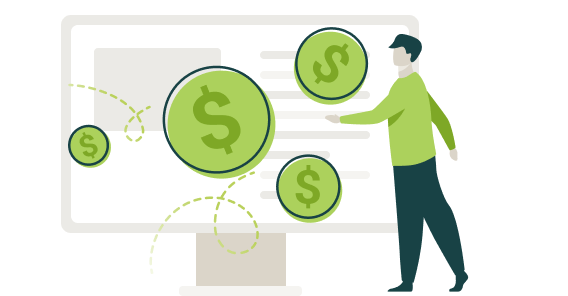






At Lendza, we guide you through the entire funding request process. Here is how it works:
Whether you need money for emergency stock, renovations, employee paychecks, or other business-related expenses – we’ll guide you through the process. When you’re ready to request funding, we may help you find a reputable provider. Our platform is:

We follow the same 256-bit encryption requirements utilized by government agencies. This means your data always stays safe.

Our request form only takes a few minutes to fill out and requires minimal information. Additionally, you may receive results on-screen in a couple of seconds.

We thoroughly vet the lenders in our network before partnering with them. We ensure they are certified and abide by federal lending regulations.
The first step is figuring out which type of provider is right for your company. Lendza can help connect you with:
Locally owned banks are a helpful resource for businesses as they are sometimes interested in building the local economy. Banks typically have higher requirements and a longer application process, but they may provide larger-sum financing.

There are many reasons why small businesses decide to borrow from an online lender. It can be faster in some cases, and online lenders may be a good fit for companies without collateral.

There are many different loan products available for small business owners to request. With Lendza, you can submit a request for:






When working with Lendza, you can feel confident that every lender in our network is reputable and reliable. Here is what a small business loan provider may consider while reviewing your application:






When applying for a loan, our partnered lenders will check to make sure you meet some basic qualifications.